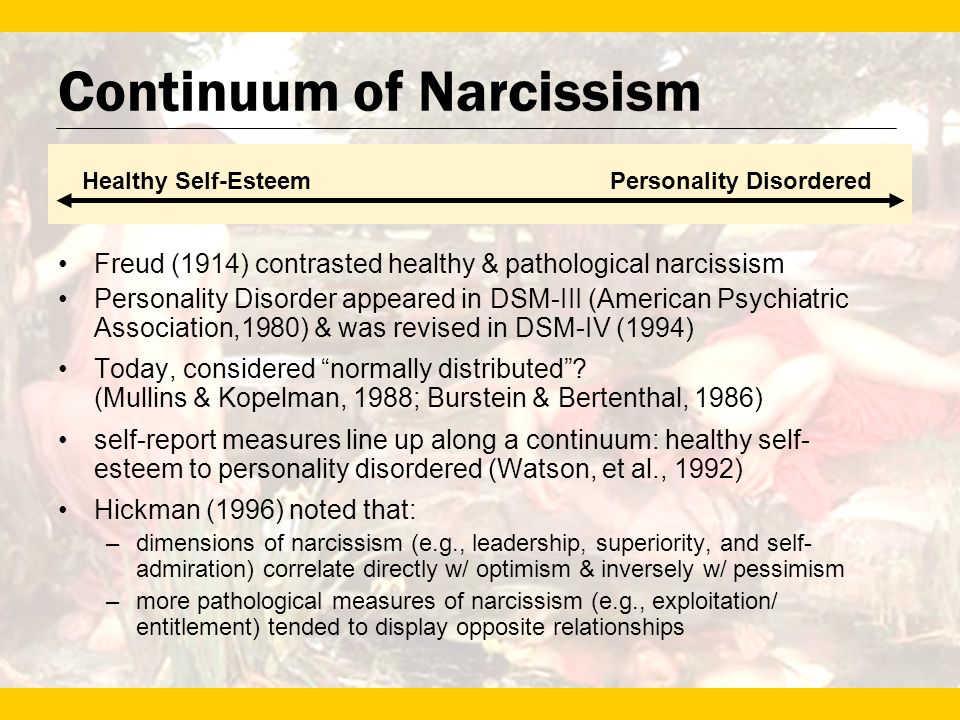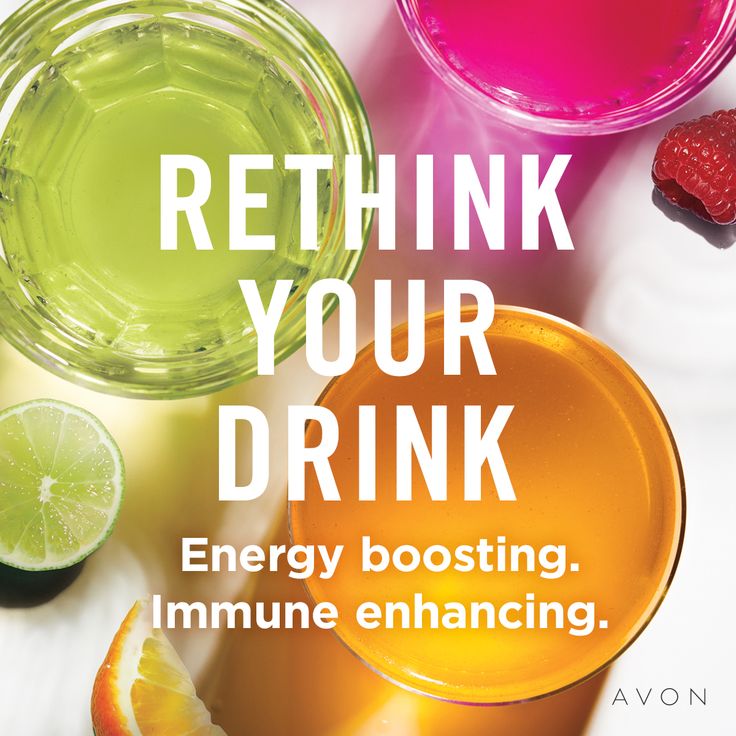Survey on stress among college students
Stress prompts 76% of 4-year college students to weigh leaving, survey finds
An article from
Dive Brief
Published April 20, 2022
Laura Spitalniak Associate Editor
diego_cervo/iStock via Getty ImagesDive Brief:
- More than three-quarters of four-year undergraduate students who considered stopping out in the past six months said it was due to emotional stress, according to a new survey from Gallup and the Lumina Foundation. That's up from just 42% in 2020.
- Nearly two-thirds of associate degree students said the same, up from 24% in 2020. Among bachelor's and associate degree students, about one-third cited the pandemic and attendance costs impacting their ability to remain enrolled.
- Researchers polled current students, prospective students and former students who stopped out either before or during the COVID-19 pandemic.
Dive Insight:
The high levels of emotional stress should be a call to action for higher education leaders, said Stephanie Marken, executive director of education research at Gallup.
"Mental health crises have been popping up on campuses across the country for several years, pre-pandemic, but COVID-19 really exacerbated these issues for students," Marken said. "This is a really critical time for educational leaders and institutions to refine their mental health programming."
Colleges face the continuous challenge of both offering resources to students and ensuring those who need them most are aware of what's available. If the support structures aren't easy to find, they won't serve their purpose, said Courtney Brown, vice president of impact and planning at Lumina.
"Institutions can't lack counselors or create offices that are down dark, unfindable hallways," Brown said. "You can't just provide academic help for students and ignore their mental well-being.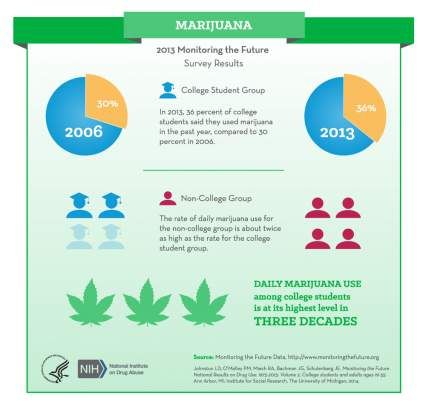 "
"
The quick pivot to virtual learning when the pandemic hit showed that colleges are capable of changing the status quo for the sake of student safety and success.
Offering virtual classes can be a good first step for colleges, but it alone is not going to break down existing barriers to an accessible education for students, Brown said. Providing emergency food and housing aid can show enrollees that colleges support them as people, not just students, she said.
Needed improvements to communication and outreach are a recurring theme throughout issues highlighted in the survey. When it comes to cost, colleges can reach more students by better conveying the true cost of attendance versus the sticker price, according to Marken.
More than half of students who aren't enrolled say the cost of college is a top reason they haven't resumed their education, the survey found. But many students pay far less than the sticker price, or advertised cost.
"Most students see the advertised total cost of attendance and aren't aware of grants or scholarships," Marken said. "I worry that if we don't better communicate the real cost, we'll continue to see either flat or continuously declining enrollments."
"I worry that if we don't better communicate the real cost, we'll continue to see either flat or continuously declining enrollments."
Colleges have shed about 1 million students since the pandemic began, according to fall 2021 enrollment data from the National Student Clearinghouse Research Center.
One positive note from the survey is how many past, current and prospective students see college as valuable. Some 61% of those actively enrolled said higher education will help them to pursue a more fulfilling career, and 60% said it will help them earn more money. Of students who were enrolled during the pandemic but stopped out, 68% said they were considering continuing their education to broaden their skills.
"Those who had stopped out or had never enrolled are still reporting that they think an education beyond high school is a pathway to a better job and a better life. The challenge is, cost is still keeping so many of them out of higher education," said Marken. "We need to affirm that their thinking is correct and that it's all worth it.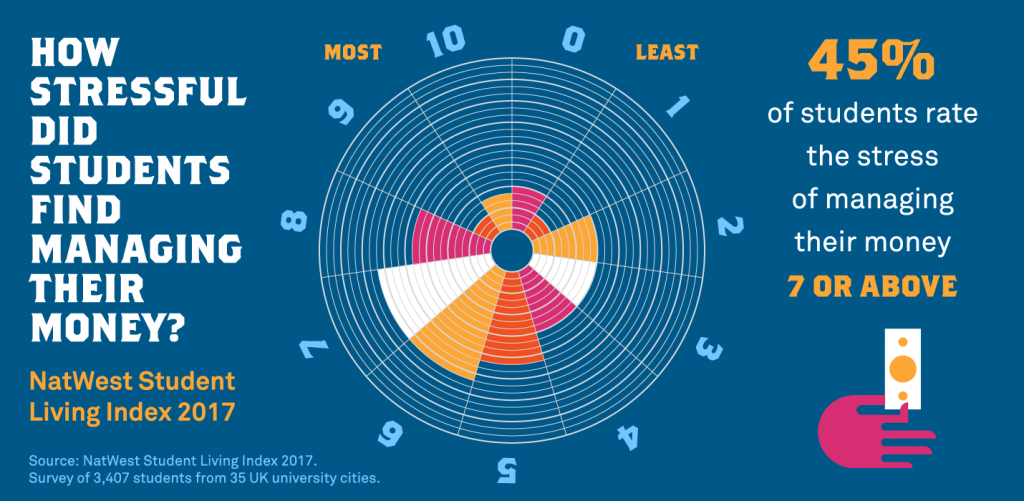 "
"
Associate degrees and certificate programs generally come with lower costs and shorter times to graduation than bachelor's degrees. Both have seen a bump in interest, according to Marken.
"We're seeing a real response from the market for short-term, credential-based experiences where students are confident they'll graduate with specific skills," said Marken.
Filed Under: Student Success, Enrollment, Higher Ed
| | |||||||||||||||||||||||||||||||||||||||||||||||||||||||||||||||||||||||||||||||||||||||||
| Hello, Please, take some moments to reflect on each question addressed and try to be as sincere as possible. Your answers will remain confidential and they will be only used in finding ways to improve the academic experience of our students in the future. You can start with the survey by clicking on the Continue button below. Thank you for your cooperation! The name of your institution:The name of your program of study:Your current class level is:Freshman (Undergrad) Sophomore (Undergrad) Junior (Undergrad) Senior (Undergrad) Graduate student Other Your gender is:Female Male Other / I prefer not to respond Your year of birth is (e.g.., 1996):How stressed do you feel on a daily basis during the academic year?
Studies issues Financial issues Family issues Friends issues Issues with the significant other (partner) Work (job-related) issues Health Related Issues Sports / Athletics activities issues My involvement in clubs and organizations Other How do you usually experience stress (in the situations selected from the list above)? Please, describe in few words the physical sensations and the feelings you encounter when you call yourself as feeling stressed. What are the usual BEHAVIORAL effects of stress you've noticed at yourself? (Select all that apply) What are the usual BEHAVIORAL effects of stress you've noticed at yourself? (Select all that apply)Change in activity levels Decreased efficiency and effectiveness Difficulty communicating Increased sense of humor/gallows humor Irritability, outbursts of anger, frequent arguments Inability to rest, relax or let down Change in eating habits Change in sleep patterns Change in activity performance Periods of crying Increased use of tobacco, alcohol, drugs, sugar or caffeine Hyper-vigilance about safety or the surrounding environment Avoidance of activities or places that trigger memories Accident prone Other What are the usual PSYCHOLOGICAL or EMOTIONAL effects of stress you've noticed at yourself? (Select all that apply)Feeling heroic, euphoric or invulnerable Denial Anxlety or fear Worry about safety of self or others Irritability or anger Restlessness Sadness, moodiness, grief or depression Vivid or distressing dreams Guilt or "survivor guilt" Feeling overwhelmed, helpless or hopeless Feeling isolated, lost, lonely or abandoned Apathy Over-identification with survivors Feeling misunderstood or unappreciated None of the Above Other What are the usual PHYSICAL effects of stress you've noticed at yourself? (Select all that apply)Increased heart rate and respirations Increased blood pressure Upset stomach, nausea, diarrhea Increased or decreased appetite which may be accompanied by weight loss or gain Sweating or chills Tremors or muscle twitching Muffled hearing Tunnel vision Feeling uncoordinated Headaches Sore or aching muscles Light sensitive vision Lower back pain Feeling a "lump in the throat" Easily startled Fatigue that does not improve with sleep Menstrual cycle changes Change In sexual desire or response Decreased resistance to colds, flu, infections Flare up of allergies, asthma, or arthritis None of the Above Hair loss Other What are the usual COGNITIVE effects of stress you've noticed at yourself? (Select all that apply)Memory problems/forgetfulness Disorientation Confusion Slowness in thinking, analyzing, or comprehending Difficulty calculating, setting priorities or making decisions Difficulty Concentrating Limited attention span Loss of objectivity Inability to stop thinking about the disaster or an incident None of the Above Other What are the usual SOCIAL effects of stress you've noticed at yourself? (Select all that apply)Withdrawing or isolating from people Difficulty listening Difficulty sharing ideas Difficulty engaging in mutual problem solving Blaming Criticizing Intolerance of group process Difficulty in giving or accepting support or help Impatient with or disrespectful to others None of the Above Other What are your personal methods to relieve stress? (Select all that apply)Eating Sleeping Drinking Drugs Sports / Exercise Talking with someone Shopping Computer Games Social Media None of the Above Other How able do you feel to handle stress when you are experiencing it?
 Study workload Grades Financial pressure (e.g. tuition, living costs) Work (and Study) - Life balance Relationship with (some) faculty members Relationship with other students Campus social life Other What is something that our university could do to help lower your stress? | |||||||||||||||||||||||||||||||||||||||||||||||||||||||||||||||||||||||||||||||||||||||||
Survey among college students » GBPOU RD "AEC"
DEAR
Teachers and students of AEC!
We live in a society and are connected with it by thousands of threads. Unfortunately, today among the youth there is a spread of methods
of terrorism and vandalism aimed at destabilizing the situation in the country and region. Of course, these people are already quite mature and
formed personalities, but we are sure that all inclinations of this kind appear from the school bench.
In order to prevent and warn in college, since September 1, explanatory work has been conducted with the invitation of representatives of
,law enforcement agencies, the clergy: “Civil and criminal liability for the manifestation of extremism”
on September 24, 2019, a representative of the clergy carried out explanatory work with college students
“Extremism is an antisocial phenomenon”, “Prevention of juvenile delinquency; parent meetings
"Education of tolerance in the family", MO curators "The content of education in modern conditions. Prevention of extremism";
Prevention of extremism";
integrated lessons on the basics of legal knowledge aimed at developing tolerant attitudes among students; meeting
of the Council for the Prevention of Offenses, Cases of Extremism and Substance Use; diagnostic studies of personality traits
of students' tolerance and attitudes towards extremism; thematic hours of communication: "Prevention and resolution of conflicts",
“We are residents of a multinational region”, “We are against violence and extremism”, “Our true nationality is human”, etc.
This work will continue in the college and what the atmosphere in the college will be like in the future depends on each of us,
on the awareness of the need to live in peace and harmony.
THIS IS IMPORTANT FOR EVERY COLLEGE STUDENT TO KNOW
Forms of extremist activity
Extremist activity involves:
• forcible change in the foundations of the constitutional order and violation of the integrity of the Russian Federation;
• public justification of terrorism and other terrorist activities;
inciting social, racial, national or religious hatred;
propaganda of the exclusivity, superiority or inferiority of a person on the basis of his social, racial, national,
religious or linguistic affiliation or attitude to religion;
• propaganda and public display of Nazi paraphernalia or symbols,
or paraphernalia or symbols confusingly similar to Nazi paraphernalia or symbols, etc. February 4, 2020 college student survey.
February 4, 2020 college student survey.
In the college, the teacher psychologist Satiadzhievva M.A provides psychological support for students within the framework of
Prevention of terrorism and extremism. The students are explained the negative impact of the media,
information channels on the perception of a young person, a social video was shown about the danger of terrorist behavior among young people
, a survey is being conducted. All this activity allows to prevent
deviant behavior in the behavior of students in a timely manner, form a stable healthy worldview and create an atmosphere
in college especially favorable.
Poll among students
During the survey, the following indicators for college
have a problem of terrorism?
-80% of respondents gave an affirmative answer; 17% answered "I don't know"; 3% - "no".
Is terrorism dangerous for society?
-94% of respondents said "yes"; 6% - “difficult to answer”
Terrorism is a violent way to achieve one's own goals.
-64% of respondents chose this option;
Terrorism is a policy based on the systematic intimidation of the population
-20% of the students answered in this way;
Terrorism is a way of fighting for power based on the use of physical violence.
- 16% of students chose this answer option.
Do you think that the state is doing everything possible to solve the problem of terrorism?
68% yes;
10% - no;
22% - “difficult to answer”
Can you justify a terrorist under any circumstances?
- 85% answered “not at all”; 15% - "I find it difficult to answer."
Do you think terrorists are criminals?
- “Completely yes” was answered by 94% of the respondent; 6% - "difficult to answer"
At the end of the survey, students were shown a social video "Terrorism has no future. "
"
Followed by a discussion on the training manual "Civilians in countering the spread of the ideology of terrorism" 2018 Darbishev M.D.
Beksultanov A.A. K.E.N. director of AEC
Influence of physical activity on stress resistance of students
Influence of physical activity on stress resistance of students Balkova Darya Vitalievna,
2nd year student Faculty of World Economy Samara State University of Economics
Russian Federation, Samara E-mail: balkova. darya 121 @yandex. ru
Balkova Darya Vitalievna,
2nd year student faculty of world economy FSBEI Samara State University of Economy Russian Federation, Samara Е-mail: balkova. darya 121 @yandex. ru
darya 121 @yandex. ru
Savelyeva Olga Viktorovna
Senior Lecturer Samara State University of Economics
Russian Federation, Samara Е-mail: Savelevаlelyа@mail.ru
Savelyeva Olga Viktorovna
Senior Lecturer, FSBEI Samara State University of Economy Russian Federation, Samara Е-mail: Savelevа lelyа@mail.ru
Abstract.
As part of this article, a study was made of the dependence of stress resistance on the physical activity of students aged 18 to 24 years of higher educational institutions in Samara, the Samara region, in order to prove a correlation between the two factors and emphasize the relevance of the problem of academic stress among students of universities and colleges these days.
Annotation.
This article identifies that a study was conducted of the dependence of stress resistance on the physical activity of students aged 18 to 24 years of higher education in Samara, the Samara region, in order to prove the correlation between the two factors and to emphasize the relevance of the problem of academic stress in universities and colleges in our days.
Key words: physical activity, sports, physical culture, stress, resistance to stress, student.
Key words: physical activity, sport, physical education, stress, stress resistance, student.
The benefits of exercise - improving physical condition and immunity from disease - have long been recognized, and doctors always recommend staying physically active. Exercise is also considered vital for maintaining mental health, which can reduce stress. Research shows that sports are very effective in reducing fatigue, increasing alertness and concentration, and improving overall cognitive function. This can be especially helpful when stress drains energy or the ability to concentrate.
Scientists have found that regular exercise reduces overall stress levels, improves mood, improves sleep and improves self-esteem. Even five minutes of aerobic exercise can stimulate the release of endorphins. Regular physical activity has a unique ability to invigorate and relax, resist depression and relieve stress. This relationship has been confirmed in clinical trials in which physicians have successfully used 90,006 90,002 exercises to treat anxiety disorders and clinical depression.
This relationship has been confirmed in clinical trials in which physicians have successfully used 90,006 90,002 exercises to treat anxiety disorders and clinical depression.
The benefits of exercise have a neurochemical basis. Exercise reduces the levels of stress hormones in the body, such as adrenaline and cortisol. Exercise also stimulates the production of endorphins, chemicals in the brain that are natural pain relievers and elevate the body's mood. Endorphins are responsible for the feeling of relaxation and optimism that comes with hard training. When stress affects the brain, the rest of the person's body also feels the impact. Sports and other physical activities produce endorphins - chemicals in the brain that act as natural painkillers - and also improve sleep, which in turn reduces stress.
Almost any kind of exercise helps to fight stress. Walking and running are prime examples. Even a simple 20-minute walk can clear your mind and reduce stress. But some people prefer vigorous workouts that burn stress along with calories. This is one of the reasons why elliptical appliances are so popular. Even stretching exercises that help relax your muscles after a hard workout can also help relax your brain. Meditation, acupuncture, massage, even deep breathing can release endorphins in the body. The conventional wisdom is that low-to-moderate-intensity exercise makes a person feel energized and healthy.
This is one of the reasons why elliptical appliances are so popular. Even stretching exercises that help relax your muscles after a hard workout can also help relax your brain. Meditation, acupuncture, massage, even deep breathing can release endorphins in the body. The conventional wisdom is that low-to-moderate-intensity exercise makes a person feel energized and healthy.
In the course of a population survey, Romir Research Holding asked respondents a number of questions on the topic of stress in the modern world. So, as part of the survey, it turned out that the vast majority of Russians (95%) experience stress, and just over a third of the respondents (34%) experience it all the time. For the majority of respondents, the manifestation of stress is anxiety and restlessness (48%), fatigue (47%) and sleep disorders (41%). Women in the fight against stress most often share experiences with loved ones (54%), take sedatives (40%) and go in for sports or hobbies (38%). Men, in turn, also talk with loved ones (44%) and go in for sports (27%), but also drink alcohol (25%) to relieve stress. Threat to own health (79%) and the health of loved ones (70%), as well as family problems (73%) are the most common causes of stress, according to Russians. It is interesting to note that the main group experiencing constant stress are Russians aged 18-26 (40%). Respondents of retirement age were much less susceptible to stress - only 18% of pensioners reported experiencing stress.
Threat to own health (79%) and the health of loved ones (70%), as well as family problems (73%) are the most common causes of stress, according to Russians. It is interesting to note that the main group experiencing constant stress are Russians aged 18-26 (40%). Respondents of retirement age were much less susceptible to stress - only 18% of pensioners reported experiencing stress.
As part of the survey, Russians were also asked what methods they prefer to deal with stress. The answers to this question were divided by gender. Thus, more than half of women (54%) said that they first of all try to share their experiences with their relatives and friends. Four out of ten women (40%) take sedatives during times of stress, most of whom (69%) of plant origin, such as valerian or herbal tea. And finally, more than a third of the women surveyed (38%) go in for sports or hobbies to overcome stress.
Men's ways of coping with stress are slightly different from those of women. Thus, among men it is also most popular (44%) to share thoughts and experiences with friends and relatives in order to find a way out of a stressful state. 27% of men try to play sports or their favorite hobby for the same purpose. In addition, a quarter of the men surveyed (25%) said they resort to alcoholic beverages when they are stressed. Among women, for example, only 9% chose alcohol as a means they use to relieve stress.
27% of men try to play sports or their favorite hobby for the same purpose. In addition, a quarter of the men surveyed (25%) said they resort to alcoholic beverages when they are stressed. Among women, for example, only 9% chose alcohol as a means they use to relieve stress.
According to VTsIOM research, the share of Russians who are constantly experiencing stress in 2019
is 8.3% (for comparison, the figure for 2010 is 3.1%). More often than others, women or young people aged 18 to 24 experience stress. Men, on the contrary, state that they rarely or almost never experience stress. At the same time, 58% of respondents turn to friends or relatives for help in search of a way out of stress, 42% are looking for a way out of the situation themselves. And only 12%, including those who seek therapy from friends and relatives, seek help from a psychologist or psychiatrist. 9 more% are engaged in self-soothing, and 7% of respondents use sedative pharmacological agents, go in for sports - 6%, change the situation - 6%.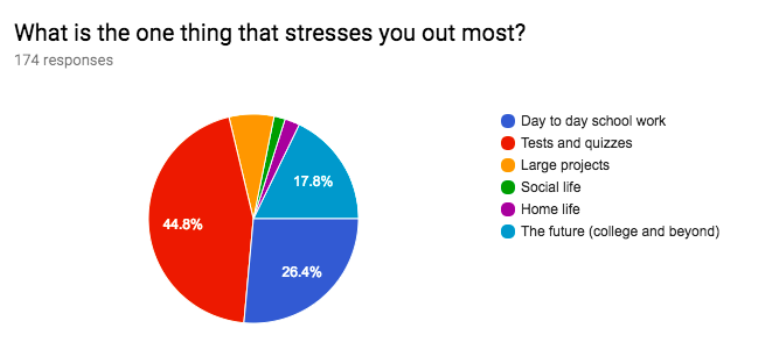
As part of this study, it should be emphasized that 6% of the respondents surveyed by VTsIOM prefer to engage in physical activity in order to increase stress resistance. Given the fact that young people aged 18 to 24 are the most stressed, the hypothesis of a relationship between students' stress resistance and increased physical activity is acceptable.
Stress can directly affect a person's health. Stress occurs when people view a situation or problem as exceeding their available resources to overcome difficulties [1, p.55]. University and college students in Russia are exposed to several stressors, including academic and social pressures, as well as problems of socialization in a new environment.
For this study, a survey was conducted, which assessed 110 students from three different universities in the city of Samara, Samara region - Samara State University of Economics, Samara National Research University named after Academician S.P. Korolev, Samara State Technical University.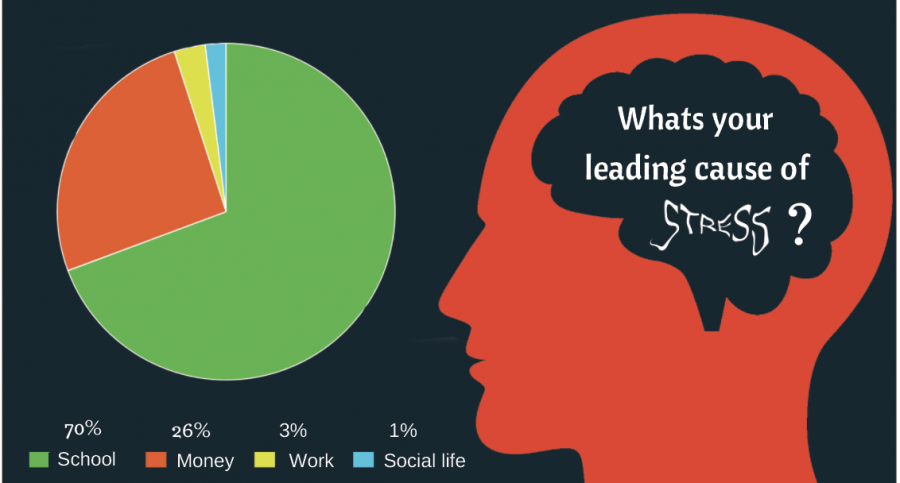 It is necessary to mention the limitation associated with the study. The sample in this study consisted of students from three universities, which may not correspond to the typical number of university students in other subjects of the Russian Federation.
It is necessary to mention the limitation associated with the study. The sample in this study consisted of students from three universities, which may not correspond to the typical number of university students in other subjects of the Russian Federation.
This survey involved 68 women and 42 men. The study showed that people with high levels of stress (46% of those surveyed) had poor eating habits (79% of those surveyed exposed to stress) and decreased physical activity (85%). This study also showed that student-athletes are more often women than men. However, those students who are not athletes adhere to healthy behaviors such as regular daily exercise (15% of the total). Let us explain that gender differences and stress were documented by questionnaires.
Students with higher levels of stress perceive themselves as less healthy and have lower self-esteem. All this contributes to poor health. A diverse sample of such a large number of students showed that men and women who engaged in regular physical activity had lower levels of stress at all ages (from 18 to 24).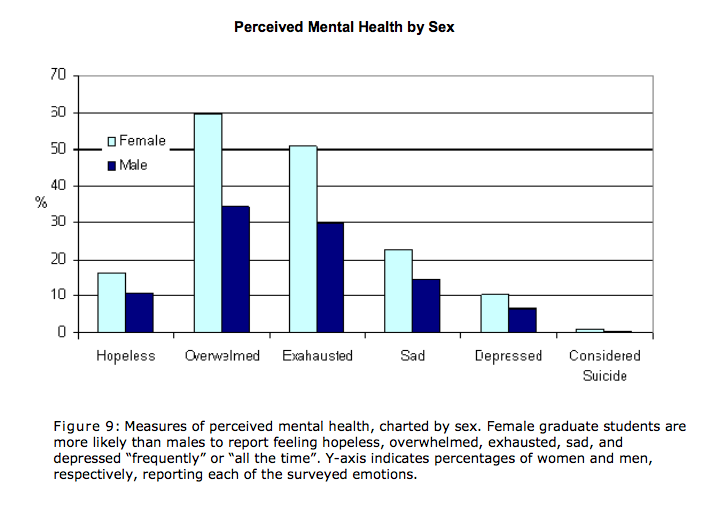 Physically active people are less stressed and also have better problem-solving and coping skills. It is worth noting that high levels of stress in universities are also associated with depression, anxiety, and dissatisfaction with life. Fifty-four percent of undergraduate students surveyed said those who exercised frequently were less likely to experience depression and have higher self-esteem.
Physically active people are less stressed and also have better problem-solving and coping skills. It is worth noting that high levels of stress in universities are also associated with depression, anxiety, and dissatisfaction with life. Fifty-four percent of undergraduate students surveyed said those who exercised frequently were less likely to experience depression and have higher self-esteem.
Good interpersonal relationship building is also associated in this study with a healthier lifestyle. In particular, the risk of many chronic diseases is much lower in people who are able to build good interpersonal communication. The social environment and the ability to communicate with other people often correlate with a healthy lifestyle.
One of the most prominent stressors in the lives of students is academic stress. Students report experiencing stress at predictable times each semester, with the highest degree occurring at the end of the semester as a result of passing exams, competitions, and a big
amount of time devoted to study [2, p.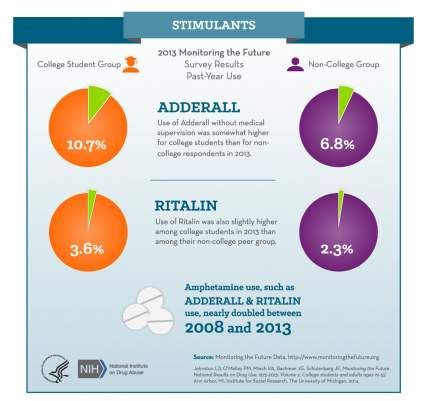 155].
155].
The effectiveness of academic stress as a psychosocial stressor is well known in relation to the effects on physiological and psychological health [1, p.56]. Academic stress has been shown to have a negative impact on physiological health variables such as immune function and neuroendocrine function. In addition, various effects on the psyche can be found during periods of academic stress, such as increased anxiety, poor sleep quality, and negative health effects. Based on these results, it can be assumed that periods of academic stress (i.e. examination periods) have a negative impact on health.
Figure 1. Results of a survey of students aged 18 to 24 on the issue of stress resistance, pers.
Evidence suggests that the relationship between stress and sleep quality is bidirectional:
1) Frequent stress has a negative effect on sleep quality;
2) Poor quality of sleep affects the reduction of stress resistance.
Research has shown that students with higher levels of stress also report poorer sleep quality, poor mood and/or illness.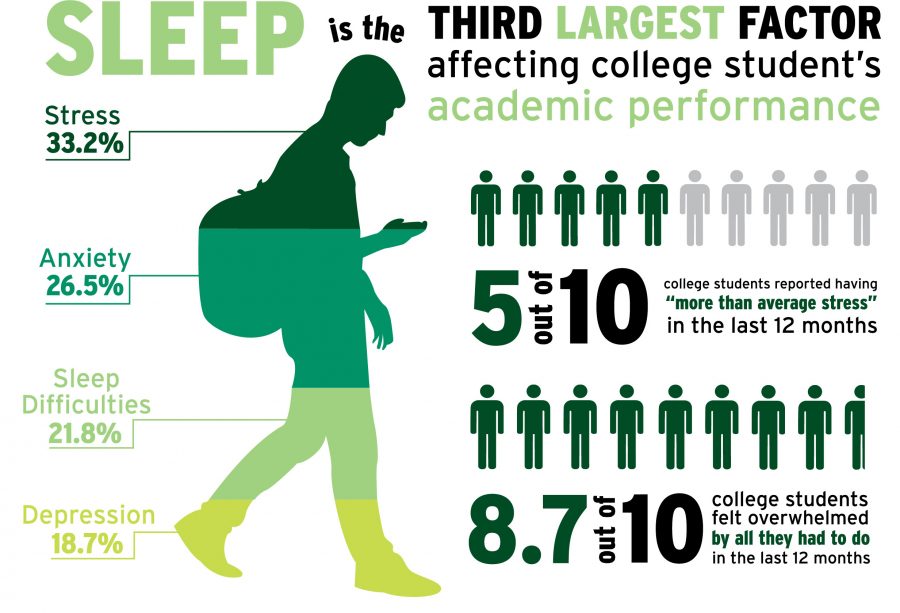
Well-being is generally defined as optimal functioning that enables a person to lead an efficient life and achieve life satisfaction and true happiness. It has been found to be inversely related to students' perceived stress, meaning that students experience a decrease in their sense of well-being during periods of high stress, in which feeling unwell also has a negative impact on health. To avoid any health complaints brought on by stress during university and college periods, well-being can be viewed as a mental health resource to be enjoyed even during times of high stress.
Taken together, stress and poor sleep quality are well known to negatively affect overall health. However, it is necessary to understand how healthy students during periods of academic stress can counteract these negative effects of stress [3, p. 224]. Although there is evidence that physical activity and exercise can improve symptoms of depression, bipolar spectrum symptoms, or mood disorders in clinical samples of students, less is known about their effect on directly healthy student groups.
Our hypothesis postulates that physical activity (which is further used as the basis of life, including all physical exercises and activities with physical exercises, such as cycling, walking, etc.) can act as a moderator of stress- health by reducing the detrimental effects of stress on physical and mental health, and therefore can neutralize the negative effects of stress on health.
Based on these results, this study was carried out to shed light on the current problem of lack of stress resistance in students. The result is the conclusion that those students who are regularly physically active have good sleep, good health and the absence of bad eating habits much more often than students who do not engage in physical education. Thus, increasing the level of physical activity and reducing stress exposure on the part of university students will be the focus in the future. Given that levels of physical activity are generally seen as stress-reducing factors, more strategies need to be identified and implemented to encourage students to engage in physical activity.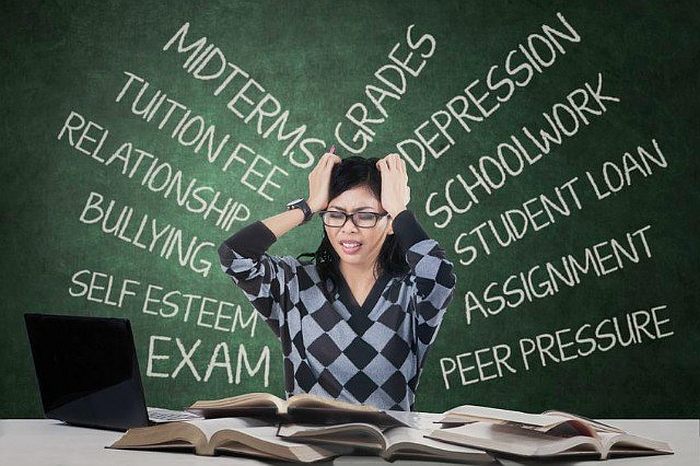
Thus, the results of this study show that physical activity is inversely related to stress and depression experienced, and human health is directly related to physical activity. The results also show that low levels of physical activity and high levels of stress are a persistent problem among university students. Given the substantial evidence that physical activity can relieve stress, it is proposed to increase the level of physical activity of university students as a means of reducing stress levels.
References:
1. Kireeva Z.A. Study of the relationship between personality stress resistance and the level of physical activity // Bulletin of the Kurgan State University. - 2015. - No. 2 (36). - S. 55-57.
2. Koryagina I.A., Korolev G.V. Studying the sources of stress among students of higher educational institutions // Humanitarian sciences. - No. 3 (47). - 2019. - S. 155-158.
3. Marchuk SA Influence of examination stress on the psychophysical state of students // Uchenye zapiski Lesgaft University.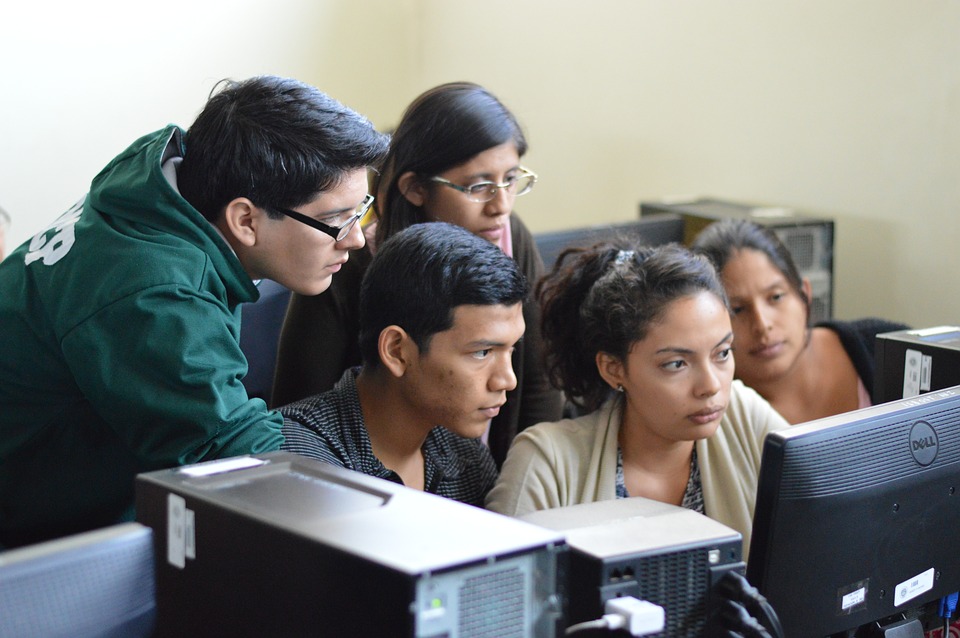
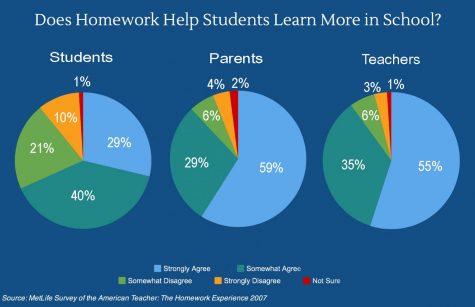 The purpose of this questionnaire is to capture feedback about the stress you've experienced this academic year and how you've handled that. The completion will take approximately 20 minutes.
The purpose of this questionnaire is to capture feedback about the stress you've experienced this academic year and how you've handled that. The completion will take approximately 20 minutes.
